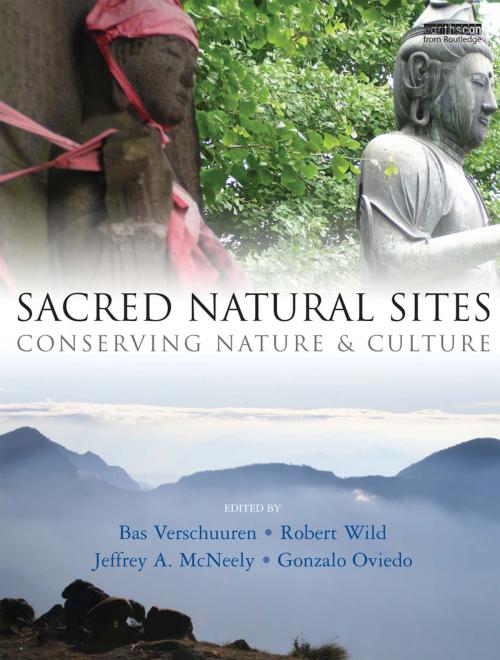Sacred Natural Sites
Conserving Nature and Culture
Nonfiction, Science & Nature, Nature, Environment, Environmental Conservation & Protection| Author: | ISBN: | 9781136530746 | |
| Publisher: | Taylor and Francis | Publication: | June 25, 2012 |
| Imprint: | Routledge | Language: | English |
| Author: | |
| ISBN: | 9781136530746 |
| Publisher: | Taylor and Francis |
| Publication: | June 25, 2012 |
| Imprint: | Routledge |
| Language: | English |
Sacred Natural Sites are the world's oldest protected places. This book focuses on a wide spread of both iconic and lesser known examples such as sacred groves of the Western Ghats (India), Sagarmatha /Chomolongma (Mt Everest, Nepal, Tibet - and China), the Golden Mountains of Altai (Russia), Holy Island of Lindisfarne (UK) and the sacred lakes of the Niger Delta (Nigeria). The book illustrates that sacred natural sites, although often under threat, exist within and outside formally recognised protected areas, heritage sites. Sacred natural sites may well be some of the last strongholds for building resilient networks of connected landscapes. They also form important nodes for maintaining a dynamic socio-cultural fabric in the face of global change. The diverse authors bridge the gap between approaches to the conservation of cultural and biological diversity by taking into account cultural and spiritual values together with the socio-economic interests of the custodian communities and other relevant stakeholders.
Sacred Natural Sites are the world's oldest protected places. This book focuses on a wide spread of both iconic and lesser known examples such as sacred groves of the Western Ghats (India), Sagarmatha /Chomolongma (Mt Everest, Nepal, Tibet - and China), the Golden Mountains of Altai (Russia), Holy Island of Lindisfarne (UK) and the sacred lakes of the Niger Delta (Nigeria). The book illustrates that sacred natural sites, although often under threat, exist within and outside formally recognised protected areas, heritage sites. Sacred natural sites may well be some of the last strongholds for building resilient networks of connected landscapes. They also form important nodes for maintaining a dynamic socio-cultural fabric in the face of global change. The diverse authors bridge the gap between approaches to the conservation of cultural and biological diversity by taking into account cultural and spiritual values together with the socio-economic interests of the custodian communities and other relevant stakeholders.















